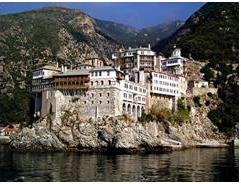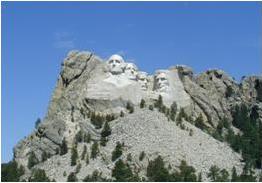Alexander the Great, at the age of 32 years ( he only reigned for 12 years) had conquered a huge empire; he had taken over all Greece and the Persian Empire and he had arrived to India; he had conquered Asia Minor and Egypt; he had founded dozens of cities, which he named Alexandria, the most famous was that one in Egypt. He had become a mythical being, about whom dozens of biographies and stories, some true and some fantastic, were written.
Well, Lucian of Samosata has a very interesting little book entitled, (probably he did not call it by this name; it should be called "laudatory history of the recent war against the Parthians") " The Way to Write History”. Among the several tips,it interests me now highlight two fundamental: first and foremost that history must to respect the true facts objectively; the second one is to avoid all flattery, which only serves to make ridiculous the flatterer .
I reproduce the text of the work of Lucian in which he puts an example of how Alexander rejected angry the overly laudatory fantastic tale of a bad historian. Then I will discuss another curious example where he rejected the adulatory proposal of an architect. It is very interesting to see that Alxander, so young but an unparalleled hero, almost a god, before whom the East, following its uses, kneel and whom his soldiers followed blindly, this "demigod " is enough human and sane to despise the flatterers. See http://www.antiquitatem.com/en/proskynesis-bow-monarchy-persians
Lucian of Samósata: The Way to Write History , 11-12
Eulogy, I need hardly say, may possibly please one person, the eulogized, but will disgust every one else; this is particularly so with the monstrous exaggerations which are in fashion; the authors are so intent on the patron-hunt that they cannot relinquish it without a full exhibition of servility; they have no idea of finesse, never mask their flattery, but blurt out their unconvincing bald tale anyhow.
The consequence is, they miss even their immediate end; the objects of their praise are more inclined (and quite right too) to dislike and discard them for toadies — if they are men of spirit, at any rate. Aristobulus inserted in his history an account of a single combat between Alexander and Porus, and selected this passage to read aloud to the former; he reckoned that his best chance of pleasing was to invent heroic deeds for the king, and heighten his achievements. Well, they were on board ship in the Hydaspes; Alexander took hold of the book, and tossed it overboard; ‘the author should have been treated the same way, by rights,’ he added, ‘for presuming to fight duels for me like that, and shoot down elephants single-handed.’ (Translated by Fowler, H W and F G. Oxford: The Clarendon Press. 1905)
The story of Lucian follows immediately with another example of the wisdom of the young Alexander at the proposal of an architect who certainly seemed preposterous and simply flattering. We seem impossible task to convert an entire mountain, the Athos, in the effigy of Alexander. However we can imagine how the muntain, now occupied by a famous monastery, could have been, watching what 2300 years later (1927-1941) Gutzon Borglum made on Mount Rushmore in Keystone, South Dakota, in which 400 workers carved the faces of the first four of presidents of United States, George Washington, Thomas Jefferson, Theodore Roosevelt and Abraham Lincoln. It is the group called Mount Rushmore National Monument .


A very natural indignation in Alexander, of a piece with his treatment of the intrusive architect; this person offered to convert the whole of Mount Athos into a colossal statue of the king — who however decided that he was a toady, and actually gave him less employment in ordinary than before.
The Roman architect Vitruvius also reminds us this story and tells us that the architect was called Dinócrates, in his De architectura, II,1-4:
1. Dinocrates the architect, relying on the powers of his skill and ingenuity, whilst Alexander was in the midst of his conquests, set out from Macedonia to the army, desirous of gaining the commendation of his sovereign. That his introduction to the royal presence might be facilitated, he obtained letters from his countrymen and relations to men of the first rank and nobility about the king's person; by whom being kindly received, he besought them to take the earliest opportunity of accomplishing his wish. They promised fairly, but were slow in performing; waiting, as they alleged, for a proper occasion. Thinking, however, they deferred this without just grounds, he took his own course for the object he had in view. He was, I should state, a man of tall stature, pleasing countenance, and altogether of dignified appearance. Trusting to the gifts with which nature had thus endowed him, he put off his ordinary clothing, and having anointed himself with oil, crowned his head with a wreath of poplar, slung a lion's skin across his left shoulder, and carrying a large club in his right hand, he sallied forth to the royal tribunal, at a period when the king was dispensing justice.
2. The novelty of his appearance excited the attention of the people; and Alexander soon discovering, with astonishment, the object of their curiosity, ordered the crowd to make way for him, and demanded to know who he was. "A Macedonian architect," replied Dinocrates, "who suggests schemes and designs worthy your royal renown. I propose to form Mount Athos into the statue of a man holding a spacious city in his left hand, and in his right a huge cup, into which shall be collected all the streams of the mountain, which shall then be poured into the sea."
3. Alexander, delighted at the proposition, made immediate inquiry if the soil of the neighbourhood were of a quality capable of yielding sufficient produce for such a state. When, however, he found that all its supplies must be furnished by sea, he thus addressed Dinocrates: "I admire the grand outline of your scheme, and am well pleased with it: but I am of opinion he would be much to blame who planted a colony on such a spot. For as an infant is nourished by the milk of its mother, depending thereon for its progress to maturity, so a city depends on the fertility of the country surrounding it for its riches, its strength in population, and not less for its defence against an enemy. Though your plan might be carried into execution, yet I think it impolitic. I nevertheless request your attendance on me, that I may otherwise avail myself of your ingenuity."
4. From that time Dinocrates was in constant attendance on the king, and followed him into Egypt; where Alexander having perceived a spot, at the same time naturally strong, the centre of the commerce of the country, a land abounding with corn,º and having those facilities of transport which the Nile afforded, ordered Dinocrates to build a city whose name should be Alexandria. Dinocrates obtained this honour through his comely person and dignified deportment.
Vitruvius ends, not without irony, the passage with these words:
But to me, Emperor, nature hath denied an ample stature; my face is wrinkled with age, and sickness has impaired my constitution. Deprived of these natural accomplishments, I hope, however, to gain some commendation through the aid of my scientific acquirements, and the precepts I shall deliver. (Translated by Joseph Gwilt, London: Priestley and Weale, 1826)
1. Dinocrates architectus cogitationibus et sollertia fretus, cum Alexander rerum potiretur, profectus est e Macedonia ad exercitum regiae cupidus commendationis. is e patria a propinquis et amicis tulit ad primos ordines et purpuratos litteras ut aditus haberet faciliores, ab eisque exceptus humane petiit uti quamprimum ad Alexandrum perduceretur. cum polliciti essent, tardiores fuerunt idoneum tempus expectantes. itaque Dinocrates ab his se existimans ludi ab se petiit praesidium. fuerat enim amplissima statura, facie grata, forma dignitateque summa. his igitur naturae muneribus confisus vestimenta posuit in hospitio et oleo corpus perunxit caputque coronavit populea fronde, laevum umerum pelle leonina texit, dextraque clavam tenens incessit contra tribunal regis ius dicentis.
2. novitas populum cum avertisset, conspexit eum Alexander. admirans ei iussit locum dari ut accederet, interrogavitque quis esset. at ille, Dinocrates, inquit, architectus Macedo, qui ad te cogitationes et formas adfero dignas tuae claritatis. namque Athon montem formavi in statuae virilis figuram, cuius manu laeva designavi civitatis amplissimae moenia, dextra pateram quae exciperet omnium fluminum quae sunt in eo monte aquam, ut inde in mare profunderetur.
3. delectatus Alexander narratione formae statim quaesiit, si essent agri circa qui possent frumentaria ratione eam civitatem tueri. cum invenisset non posse nisi transmarinis subvectionibus, Dinocrates, inquit, attendo egregiam formae compositionem et ea delector, sed animadverto si qui deduxerit eo loci coloniam fore ut iudicium eius vituperetur. ut enim natus infans sine nutricis lacte non potest ali neque ad vitae crescentis gradus perduci, sic civitas sine agris et eorum fructibus in moenibus affluentibus non potest crescere nec sine abundantia cibi frequentiam habere populumque sine copia tueri. itaque quemadmodum formationem puto probandam, sic iudico locum inprobandum, teque volo esse mecum, quod tua opera sum usurus.
4. ex eo Dinocrates ab rege non discessit et in Aegyptum est eum persecutus. ibi Alexander cum animadvertisset portum naturaliter tutum, emporium egregium, campos circa totam Aegyptum frumentarios, inmanis fluminis Nili magnas utilitates, iussit eum suo nomine civitatem Alexandriam constituere. ita Dinocrates a facie dignitateque corporis commendatus ad eam nobilitatem pervenit. mihi autem, imperator, staturam non tribuit natura, faciem deformavit aetas, valetudo detraxit vires. itaque quoniam ab his praesidiis sum desertus, per auxilia scientiae scriptaque ut spero perveniam ad commendationem.
Plutarch also gives us news of the story, but now the architect is called Estasícrates. Alejander want to make a grand tomb for his friend Hephaestion, who has just died, and he calls the architect cited; he tells us in his Alejander, 72.3-4
Upon a tomb and obsequies for his friend, and upon their embellishments, he purposed to expend ten thousand talents, and wished that the ingenuity and novelty of the construction should surpass the expense.He therefore longed for Stasicrates above all other artists, because in his innovations there was always promise of great magnificence, boldness, and ostentation.
[4] This man, indeed, had said to him at a former interview that of all mountains the Thracian Athos could most readily be given the form and shape of a man; if; therefore, Alexander should so order, he would make out of Mount Athos a most enduring and most conspicuous statue of the king, which in its left hand should hold a city of ten thousand inhabitants, and with its right should pour forth a river running with generous current into the sea. This project, it is true, Alexander had declined; but now he was busy devising and contriving with his artists projects far more strange and expensive than this. ( Plutarch's Lives. English Translation by. Bernadotte Perrin. Cambridge, MA. Harvard University Press. London. William Heinemann Ltd. 1919. 7. ).
Anyway, today also and too often they are a good match the megalomania of policymakers with that of the artists.
Note: megalomania is a word composed by the Greek μεγαλο- from μέγας, large, and μανία, insanity, which therefore means "delusions of grandeur".

